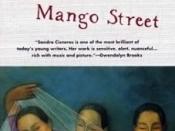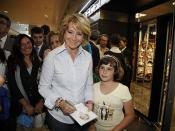Different Worlds The novel "House on Mango Street" conveys a variety of themes and issues surround society. One of the more significant issue brought up in the story is of the generational differences between the world of adults and the world of children. The book for the most part is told through the eyes of a child (Esperanza) but still the speaker tries to make a connection between the world that she lives in and the world that she sees adults living. The differences are subtle and dramatic at the same time. In Esperanza's eyes the world that she lives in is one of hope and opportunity. To her and her friends the life of a child is that of exploration and challenge. She knows the outcome of her life if she does what is expected of her (which is very little). So rather than conforming to what others expect of her she decides to expand her life by going to a good school and working hard to educate herself.
Besides just the just financial possibilities of her future Esperanza talks about the other possibilities of a child. She writes about hopes of marriage, friends, and her dreams. Based on what Esperanza describes as the dreams of children in the story the reader sees a glimmer of hope for something better because time is on their side. They have endless opportunities of change and advancement in life. The world of the adults however, is dramatically different. According to the descriptions from Esperanza, the world of adulthood is that of a cold and hopeless one. It appears that once the child reaches adulthood he or she has to choose his or her own reality. The reality is not just their own self-identification but also their physical status in society.


